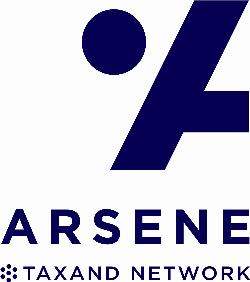Article 195 of the Finance Act for 2021 entitled the Government to adopt by ordinance, within nine months of its publication, all necessary measures to ensure the generalization of e-invoicing.
It’s done!
The ordinance n°2021-1190 of September 15th, 2021[1] relating to the generalization of e-invoicing in the frame of domestic B2B transactions end e-reporting (hereinafter, « the ordinance ») have been published on Thursday September 16th, 2021.
As a reminder, the purpose of this ordinance is to progressively generalise (i) e-invoicing to all transactions between taxable persons and (ii) the transmission of complementary transaction and payment data.
The initial deadline of January 1st, 2023 for some companies no longer seemed reasonable due to the necessary internal adjustments.
Thus, the ordinance postpones the entry into force of the regulation to July 1st, 2024 for the first roll-out initially scheduled for January 1st, 2023, in order to give companies the necessary time to prepare for the entry into force of the regulation.
In the light of the degree of digital maturity of businesses, Article 3 of the Ordinance delays the entry into force of the new rules:
- For e-invoicing:
- Receipt: As of July 1st, 2024 (instead of January 1st, 2023), receipt of e-invoices for all companies.
- Issuance:
- As of July 1st, 2024 (instead of January 1st, 2023), for large companies for the issuance of e-invoices for domestic B2B transactions
- As of January 1st, 2025 (instead of January 1st, 2024), for mid-sized companies
- As of January 1st, 2026 (instead of January 1st, 2025), for small and medium-sized enterprises and micro-enterprises
- For e-reporting (electronic transmission of international B2B transactions and B2C transactions data): the roll-out will follow the same schedule.
In addition to this postponement, Article 1 of the ordinance defines the scope of the new rules and sets out the practical modalities for the exchange of e-invoices and the transmission of invoicing and transactions data to the tax authorities.
While certain details have yet to be defined, it will be possible to use either the public Chorus Pro platform, which is already in use for B2G[2] transactions, or a private partner platform which will have to obtain a prior registration (for a renewable period of three years) from the tax authorities.
Next deadlines:
- Implementing decrees: the practical implementation modalities will be set out in decrees by the French Supreme Administrative Court which (according to the information at our disposal) should be published during the first quarter of 2022.
- Agreement of the Council of the European Union[3]: as for Italy, the generalization of e-invoicing is subject to the agreement of the Council of the EU. This agreement is required to benefit from the provision of Article 395 of Directive 2006/112/EC which authorises Member States to derogate from the rule pursuant to which the use of e-invoicing is subject to the acceptance of the recipient. Prior to being granted this agreement, France’s request must be examined by the European Commission (currently in progress).
Nathalie Habibou
[email protected]
Our VAT Team is at your entire disposal should you need any further information or assistance on this subject.
_______________________________________________________
[1] https://www.legifrance.gouv.fr/jorf/id/JORFTEXT000044044176
[2] Business to Government
[3] Report to the President of the Republic on Ordinance n°2021-1190 of 15 September 2021 https://www.legifrance.gouv.fr/jorf/id/JORFTEXT000044044172


